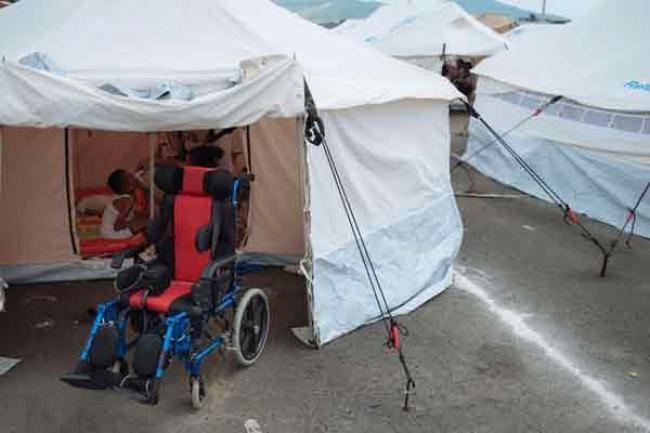Just Earth News 21 May 2016

: UNICEF/Santiago Arcos
“The World Humanitarian Summit represents a unique opportunity to foster international support for the inclusion of persons with disabilities in all aspects of humanitarian action, including awareness-raising, innovation, response, adoption of standards, participation of civil society and international cooperation,” said Catalina Devandas-Aguilar, UN Special Rapporteur on the Rights of Persons with Disabilities, in a press release issued by the Office of the UN High Commissioner for Human Rights (OHCHR).
“I welcome the fact that the Summit has a dedicated special session on the inclusion of persons with disabilities into humanitarian action,” she added.
The UN human rights expert also called on all Governments and organizations to endorse the Charter on Inclusion of Persons with Disabilities in Humanitarian Action. The Charter, a set of key principles to make humanitarian action more inclusive of persons with disabilities, will be launched during the Summit.
“We cannot afford to miss the momentum generated by the Summit to call the attention of the international community on the situation of hundreds of thousands of persons with disabilities around the world, whom every year are disproportionately affected by armed conflict, natural disasters, other situations of risk and complex emergencies, simply because humanitarian responses do not reach them,” the expert said.
“In the context of collapsing social protection systems and networks of support, persons with disabilities find themselves in desperate situations when they cannot flee, left behind by their communities,” she added.
Challenges created by humanitarian emergencies are compounded for persons with disabilities by physical, communication and other barriers. The absence of clearly defined disability-inclusive guidelines and protocols on humanitarian action further contributes to their exclusion, due to the inaccessibility of warning systems and evacuation plans, and the unequal access they have to basic emergency services, such as safe drinking water, food, sanitation and shelter.
To address this gap, persons with disabilities must be included in all aspects of humanitarian responses – including the design, planning, coordination, and implementation and monitoring of humanitarian programmes – and be consulted and directly involved through their representative organizations. To be effective, these programmes must adopt a human rights-based approach to disability, rather than focusing on traditional, charity-oriented, medical-based, segregated and patronizing approaches and interventions, the expert said.
The expert underscored that the Convention on the rights of persons with disabilities recalls the obligation of States, under international human rights and humanitarian law, to take all necessary measures to ensure the protection and safety of persons with disabilities in situations of risk, including situations of armed conflict and humanitarian emergencies, from a human rights perspective.
States Parties to the Convention are also required to integrate a gender perspective in all phases of disability-related humanitarian action, and to consider specific interventions to respond to the explicit needs of the diversity of persons with disabilities.
“To make the Summit truly inclusive of persons with disabilities, I urge States, UN agencies and humanitarian actors to discuss the rights of persons with disabilities in all roundtables and sessions,” the human rights expert said. “The Sustainable Development Goals and the 2030 Agenda’s promise of leaving no one behind cannot be met without including persons with disabilities in all humanitarian responses,” she stressed.
She also called on States to ensure that the Commitment to Action and other outcomes of the Summit reflect a clear resolve to make humanitarian action inclusive of persons with disabilities, and to endorse the Charter on Inclusion of Persons with Disabilities in Humanitarian Action.
“I look forward to participate in a fully accessible World Humanitarian Summit for all persons with disabilities next week,” Devandas-Aguilar said.